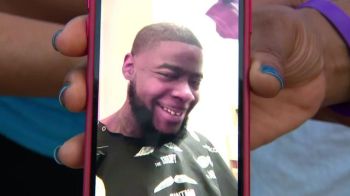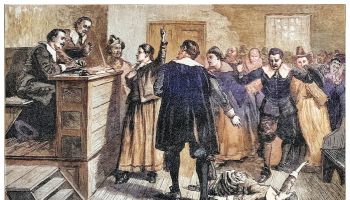Shortly after the U.S. Congress passed the Second Confiscation Act, which helped free slaves who had Confederate owners who opposed the Union, President Abraham Lincoln’s signing of the act planted the seeds for emancipation.
SEE ALSO: Race A Factor In Wrongful Convictions
What the Act also helped promote is Lincoln’s inclusion of African-Americans in the Armed Forces beyond the capacity of workers and made them soldiers, even though the President was opposed to Black fighters in the Army. Nonetheless, Congress and the United States War Department issued General Order Number 143 on this day 149 years ago. The Order allowed Black soldiers to fight alongside Whites during the Civil War and beyond.
Want to Keep Up With NewsOne.com? LIKE Us On Facebook!
Towards the end of the Civil War, the United States Colored Troops (USCT) numbered around 179,000 soldiers (the number spiked to 185,000 if non-Blacks are included). The USCT accounted for ten percent of the Union Army; an additional 19,000 served in the Navy. Although roughly 40,000 soldiers died over the length of the war, 30,000 of the troops perished to disease and infections.
SEE ALSO: Donna Summer: 9/11 Gave Me Cancer
The troops were mostly artillery and infantry soldiers, but many more were relegated to noncombat positions such as kitchen workers, medical staff, scouts, spies, steamboat pilots and other positions that kept Black fighters off the frontline. Surprisingly enough, there were 80 commissioned Black officers.
Women also served, although they were not official members of the USCT. The most well-known woman who helped support the USCT and the Union was Harriet Tubman. Several Black soldiers were recognized for their efforts, with some winning the nation’s highest award. Sergeant William Harvey Carney of the 54th Massachusetts (Colored) Volunteer Infantry was awarded the Medal of Honor for his actions at the Battle of Fort Wagner. The war film “Glory” depicted the acts of the 54th Massachusetts (Colored) Volunteer Infantry, which landed actor Denzel Washington his first Oscar.
SEE ALSO: Is Tanning Of America Only Skin Deep?
Later, Sergeant Major Christian Fleetwood was awarded the Medal of Honor for acts alongside the 4th USCT in the Battle of Chaffin’s Farm in Virginia in September 1864. A year later, the USCT was disbanded, and the troops were ordered to serve alongside regiments in the US Army across the country.
In Washington, the African-American Civil War Memorial was erected in 1997 to show honor to the USCT and other Black fighters of the epic clash. Unfortunately, many of the soldiers who served and risked their lives for America’s freedom were shunned and discarded as secondary citizens. Still, the legacy of the USCT remains intact as historians have clearly shown that Black soldiers were vital in supporting the Union’s victory in the Civil War and beyond.















